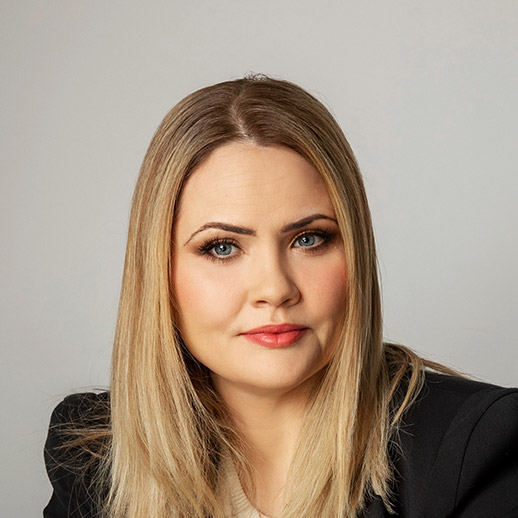Rajka Šinik Vulić
Rome Business School Belgrade is an accredited and globally recognized business school that has an agile approach to adapting its programs to contemporary business needs...


Rajka Šinik Vulić
Corporate Communication Expert
Rome Business School Belgrade (RBS) is an international business school based in Belgrade and an affiliate of Rome Business School in Italy. It has successfully operated in the domestic market for four years.
VIU accredits the Universidad Internacional de Valencia school, which awards students 60 ECTS credits and a double degree. This means that participants in the Executive MBA program at Rome Business School Belgrade receive a diploma from Rome Business School in Italy and a diploma from the University of Valencia.
RBS has numerous accreditations from the Italian Ministry of Education, the Chamber of Commerce of Rome, the European Commission, the European Council for Business Education, and many other European institutions, explains Rajka Šinik Vulić, the director of Rome Business School Belgrade. In an interview for BIZLife, she explains that participants in the Executive MBA program have the opportunity to go through and master all the secrets and techniques necessary for successful company management in the modern world through 16 modules of a carefully designed program with globally renowned lecturers and consultants.
- How does the Executive MBA program at Rome Business School Belgrade adapt to the needs of today's business leaders, and what sets it apart from similar programs?
What primarily distinguishes us is agility in approach and curriculum, as we continuously update and adapt our program in line with dynamic changes in the business environment. This means that we follow and integrate the latest trends, technologies, and practices in terms of expertise and methodology applied in our modules. On the other hand, thanks to prominent lecturers worldwide, we offer participants a global perspective and the opportunity to learn by working on current international projects and case studies. Using innovative learning methods, such as simulations, interactive workshops, and gamification, we create a dynamic environment that fosters creativity, enhances analytical abilities, and facilitates making concrete decisions.
- How do you currently assess the business education market in Serbia and the region?
In short, it is very dynamic, but it also has excellent potential for growth because there is an increasing awareness among business leaders and professionals about the importance and necessity of continuous improvement and education to respond to rapid changes in the business environment. Companies increasingly recognize the value of investing in the training of their employees, especially in the field of Executive MBA and Executive Development programs. On the other hand, economic instability, global political changes, and other external factors affect the demand for education. Companies are under pressure to optimize costs, which in some cases may temporarily affect budgets for employee training and development. Fortunately, management in most companies that strategically approach their development and plans to achieve long-term results understands that employees are one of the most critical levers of any company and that only by continuously investing in their education can a competitive advantage be achieved and the desired result be achieved. From an individual's perspective, there is also a noticeable increase in interest in this type of education, as they are well aware of the benefits that, for example, the Executive MBA program brings them, whether it be further career advancement, which consequently brings higher earnings, a more comprehensive network of contacts, more extensive projects, or the confidence to venture into entrepreneurship and start their own business.
- How interested are managers and companies in investing in education?
The interest of managers and companies in investing in education varies depending on various factors, including industry, company size, specific business challenges, and economic conditions. However, as I mentioned earlier, there is a growing trend among managers and companies in today's dynamic business environment to realize the importance of continuous education. Companies that recognize the value of investing in the education of their employees often gain competitive advantages. On the other hand, managers realize that education is crucial for empowering teams, improving skills, and acquiring strategic competencies, which are essential for long-term success in a rapidly changing business landscape. Leadership development, technological training, and specific industry-related skills are becoming priorities in education investments. Also, companies recognize that education is crucial for retaining talent, motivating employees, and building a positive corporate culture. Investing in education is often seen as a long-term strategic move that contributes to the company's and its leaders' long-term success.
- Who are your most frequent participants?
The Executive MBA program participants are ambitious and open-minded individuals who want to expand their knowledge, improve their skills, and meet similar professionals from various industries in the country and the region. They are experienced managers and leaders with some work experience, primarily currently in middle or senior management positions or already holding executive roles in organizations. Their professional portfolio often includes significant experience in team management, decision-making, and resource management. Participants in the Executive MBA program are looking for further education to gain or enhance strategic skills, develop leadership, expand their professional network, and gain a deeper understanding of the complexity of modern business. These programs are specially tailored to their needs, allowing them to continue working while attending classes, as modules are held once a month over an extended weekend, as well as the opportunity to share experiences and learn from colleagues facing similar professional challenges.
As for other programs, we started the Executive Development Program in the Serbian language last year, which we have now developed and expanded further. It is a program focused on specific topics and skills, such as developing certain competencies, team leadership, AI applications, innovation, or other particular aspects of business.
Also, thanks to the exceptionally high-quality team of professors and lecturers we have assembled, we are able to respond to specific needs for custom-made programs, which we carefully create and tailor to each client's needs.